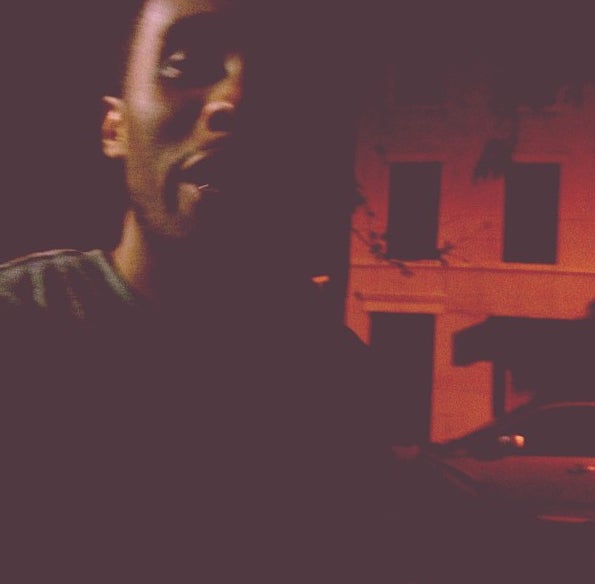
Director: Malcolm D. Lee
Stars: Monica Calhoun, Morris Chestnut, Melissa De Sousa, Taye Diggs, Regina Hall, Terrence Howard, Sanaa Lathan, Nia Long, Harold Perrineau, Eddie Cibrian
Running time: 122 minutes
Rating: R
✭✭✭✭✭✭✭✭✩✩
Score: 8/10
Review by Jason Parham (@nonlinearnotes)
Fourteen years is a long time. In 1999, I was 13, in eighth grade, and thought I knew things. Life was big and unbound back then. Times were good, and there were few worries to go around. Among a particular group of teens at Culver City Middle School that fall, Nia Long, she of the Fine-As-Hell category, became our everything—a new kind of beauty, a sort of new age Black Betty for the coming millennium. It was only two years earlier that she had captured the hearts of black men across the country as Bird inSoul Food, the 1997 film about a middle-class family struggling to stay together in the aftermath of the matriarch’s death. My personal relationship with Long (and by “personal” I mean “totally imagined”), however, goes back further.
I first fell for her in The Fresh Prince of Bel-Air as Lisa Stokes, Will’s long-time girlfriend turned fiancé. To countless warm-pulsed teens in the late 90s, Long was an ideal—our ideal (Vivica A. Fox was a close second). So, when The Best Man arrived in theaters that October, despite not being able to fully grasp’s the film’s cultural import at the time, I knew I had to see it, if only to catch a glimpse of the woman I had planned to marry.
 The narrative arc of the original film, directed by Malcolm D. Lee, then just a budding auteur, follows the story of aspiring novelist Harper Stewart (Taye Diggs) over the course of a reunion weekend in New York City, where his best friend, NFL star-running back Lance Sullivan (Morris Chestnut), is set to marry Mia Morgan (Monica Calhoun). At the film’s start, it’s revealed that Harper’s book, Unfinished Business, has been selected for Oprah’s Book Club (an honor often known to catapult writers into the mainstream) and he worries that this looming success will unearth old skeletons; several of the characters in the book are molded after his real-life friends—Lance, Mia, Jordan, (Nia Long), Quentin (Terrence Howard) and Murch (Harold Perrineau).
The narrative arc of the original film, directed by Malcolm D. Lee, then just a budding auteur, follows the story of aspiring novelist Harper Stewart (Taye Diggs) over the course of a reunion weekend in New York City, where his best friend, NFL star-running back Lance Sullivan (Morris Chestnut), is set to marry Mia Morgan (Monica Calhoun). At the film’s start, it’s revealed that Harper’s book, Unfinished Business, has been selected for Oprah’s Book Club (an honor often known to catapult writers into the mainstream) and he worries that this looming success will unearth old skeletons; several of the characters in the book are molded after his real-life friends—Lance, Mia, Jordan, (Nia Long), Quentin (Terrence Howard) and Murch (Harold Perrineau).
As the film progresses, the delicate line between fact and fiction, and how one re-imagines the past, blur in unwieldy and unforeseen ways. An advance copy of the book floats from Jordan to Q to Lance, and soon a long-buried secret arises to the surface: Harper and Mia slept together in college. “That book being around this weekend brought back some wild memories,” Q says at one point. But the good times come to a halt after Lance pieces everything together (Harper’s signature “forehead kiss” is a trademark of the book’s protagonist, and the final telltale sign). The result is anything but idyllic: Lance beats Harper within breaths of his life and threatens to cancel the wedding. In the end, Harper is able to repair the damage, but only after he admits his past transgressions to his girlfriend Robin (Sanaa Lathan) and reconciles with Lance.
All of this makes The Best Man Holiday, released nationwide today, a long-overdue treat. A decade or so has passed and the film picks up with Harper and Robin, now married, living in New York City, and expecting their first child. But life isn’t all champagne bottles and book deals, as Harper finds himself out of a teaching gig at NYU (budget cuts!) and unable to sell his latest novel. Despite their strained relationship, Harper’s publisher pushes him to consider writing a biography of Lance, who is planning to retire from the NFL soon. With Mia planning for the entire gang to join her and Lance for the Christmas holiday, Harper sees it as an opportunity to rebuild his relationship with his once-best friend, while also doing research for his book.
 But a lot has changed in the group’s time apart: Quentin now heads a music agency, Murch and Candace (Monica Calhoun) run a successful charter school in Brooklyn, Shelby (Melissa DeSousa) is a popular reality TV star on The Real Housewives of Westschester, and Jordan is a top executive at MSNBC, who’s dating a white dude (Eddie Cibrian). The typical hijinks and silly subplots that you expect are all there, but old tensions resurface, too, and Harper’s plan to pen Lance’s biography is eventually exposed. Not unlike the first time, the news places greater strain on their relationship. But none of this matters when it’s revealed that one of the characters has terminal cancer; petty feuds are rendered frivolous, and each character questions their priorities.
But a lot has changed in the group’s time apart: Quentin now heads a music agency, Murch and Candace (Monica Calhoun) run a successful charter school in Brooklyn, Shelby (Melissa DeSousa) is a popular reality TV star on The Real Housewives of Westschester, and Jordan is a top executive at MSNBC, who’s dating a white dude (Eddie Cibrian). The typical hijinks and silly subplots that you expect are all there, but old tensions resurface, too, and Harper’s plan to pen Lance’s biography is eventually exposed. Not unlike the first time, the news places greater strain on their relationship. But none of this matters when it’s revealed that one of the characters has terminal cancer; petty feuds are rendered frivolous, and each character questions their priorities.
This is not to say the film is perfect—many of the parallels between the original movie and the sequel are annoyingly similar—but if you loved the film in 1999, you’ll appreciate Lee’s follow-up.
Even now, 14 years after its debut, the film’s original high points remain with me: the classic poker scene, Harper’s wedding toast, Terrence Howard’s masterful performance as Q, Nia Long just 24/7 fine. In the history of black romantic films, TheBest Man stands among the all-time greats—Boomerang, Love & Basketball, Hav Plenty, Love Jones, and the oft-overlooked Why Do Fools Fall In Love—because it displayed a nuanced portrait of upwardly-mobile black people at a time when men and women who looked like me were beginning to vanish from the silver screen and television. Both The Best Man and The Best Man Holiday are about love, faith, and all the important values that come with friendship. But the two films are also about aspiration.
For all of Harper’s or Jordan’s or Lance’s faults, each has arrived at a certain plateau. Black can be untrustworthy and two-timing and messy, but black can also be successful, confident, and desired. That was important in 1999. And that’s still important today.
RELATED:The Best Movies of 2013 (So Far)

